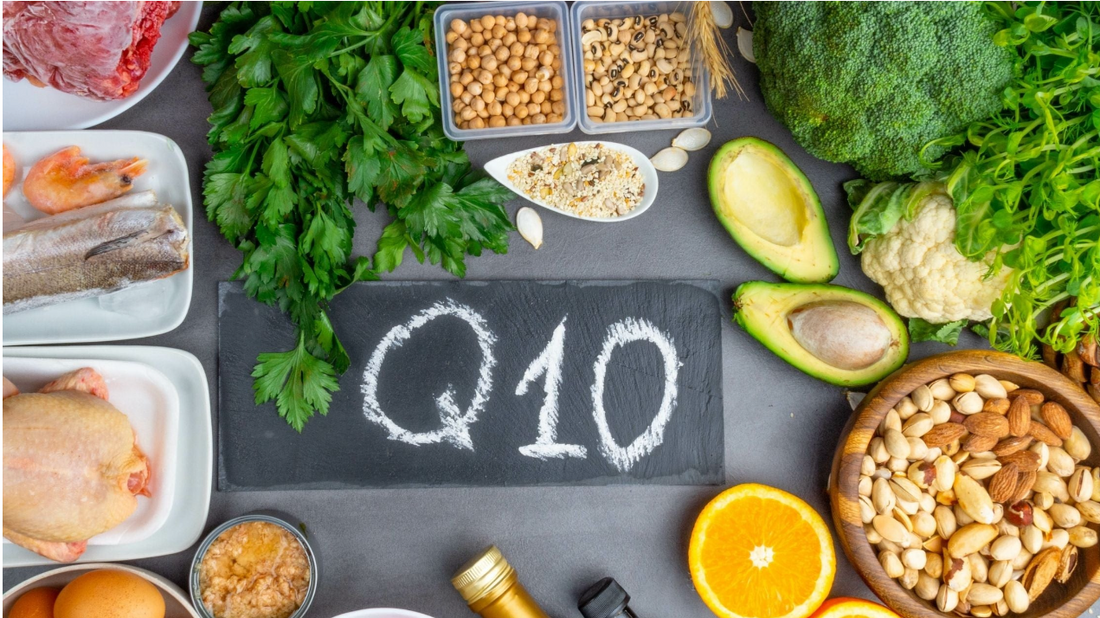Coenzyme Q10 (CoQ10) is believed to be a useful anti-aging supplement, especially in conditions where oxidative stress is increased. However, how much CoQ10 should you take daily to achieve these benefits?
Keep reading this article to find out.
Understanding Individual Needs
Several factors determine the optimal dose of CoQ10, including:
- Age: CoQ10 production naturally decreases with age.
- Health Conditions: Some diseases such as heart disease may require higher amounts of CoQ10.
- Supplement Form: Different types of CoQ10 (ubiquinone vs ubiquinol) have different absorption rates.1
General Dosage Recommendations
The following are some general guidelines for dosing CoQ10 that come from on-going research:
- Healthy Adults – 50 mg to 100mg a day.2
- Heart Health Concerns – 100 mg to 200mg a day.3
Maximizing Your CoQ10 Experience
The following are other aspects that can help you maximize your use of your own CoQ10 supplementation.
- Consult Your Doctor: Talk about your unique requirements and develop the appropriate dosage depending on your health profile and any medication you are currently using
- Consider the Form: Ubiquinol might be better absorbed than ubiquinone, particularly among elderly people.1
- Take with Food: Because it is soluble in fat; therefore taking it with fats will make its uptake by the body faster.
- Be Patient: It may take weeks or even months before one can notice anything good concerning their consumption of this nutrient.
Potential Side Effects and Interactions
Generally, CoQ10 is considered a safe and well-tolerated supplement. However, there can be some side effects for some people like:4
- Digestive issues: Nausea, diarrhea or an upset stomach may occur but mostly at high doses.
- Insomnia: Taking CoQ10 late in the day can disrupt sleep because it contributes to energy production.
Additionally, CoQ10 may interact with certain medications, such as blood thinners like warfarin (Coumadin), insulin and some cancer treatments.5
Before beginning any new supplement especially if you have other health problems or are taking other medications, you should always consult your healthcare provider.
Final Words
Coenzyme Q10 (CoQ10) is a prevalent supplement that may have cardiovascular, energy-boosting, antioxidant and immune support health benefits. It’s generally considered to be safe but can have some minor effects like stomach upsets and problems with sleep. But as always, you should talk to your doctor before you begin any new supplements, especially if you have existing health conditions or are taking other prescription medications.
References:
- Bhagavan, H. N., & Chopra, R. K. (2006). Coenzyme Q10: absorption, tissue uptake, metabolism and pharmacokinetics. Free radical research, 40(5), 445–453. https://doi.org/10.1080/10715760600617843.
- Pluta, Z., Lasoń-Rydel, M., & Hajduk, A. (2014). The role of coenzyme Q10 in the prevention and treatment of cardiovascular diseases. Postepy Higieny i Medycyny Doswiadczalnej, 68(2), 275-283. https://pubmed.ncbi.nlm.nih.gov/34068578/.
- Cirilli, I., Damiani, E., Dludla, P. V., Hargreaves, I., Marcheggiani, F., Millichap, L. E., Orlando, P., Silvestri, S., & Tiano, L. (2021). Role of Coenzyme Q10 in Health and Disease: An Update on the Last 10 Years (2010-2020). Antioxidants (Basel, Switzerland), 10(8), 1325. https://doi.org/10.3390/antiox10081325.
- Andres, S., Pevny, S., Ziegenhagen, R., Bakhiya, N., Schäfer, B., Hirsch-Ernst, K. I., & Lampen, A. (2018). Safety Aspects of the Use of Quercetin as a Dietary Supplement. Molecular nutrition & food research, 62(1), 10.1002/mnfr.201700447. https://doi.org/10.1002/mnfr.201700447.
- Sood, B., Patel, P., & Keenaghan, M. (2024, January 30). Coenzyme Q10. StatPearls - NCBI Bookshelf. https://www.ncbi.nlm.nih.gov/books/NBK531491/








